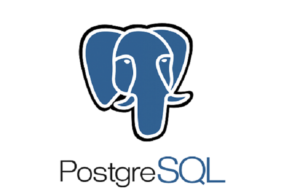
EnterpriseDB Bullish on Postgres’ 2024 Potential

As the commercial entity most responsible for the development of Postgres, EnterpriseDB had a lot to be proud of in 2023. Adoption of the open source database continued to grow, which resulted in it being named the database of the year again by DB-Engines.com. And with Postgres version 16 hitting the market last fall, the company anticipates big things in 2024.
Ever since EnterpriseDB got into the Postgres database business back in 2005, its raison d’etre has been Postgres. Back in those days, proprietary databases like Oracle 10g, IBM DB2, and Microsoft SQL Server dominated enterprise application deployments.
But over the years, as open source software in general gained a foothold in the enterprise, adoption of open source databases like Postgres and MySQL began to grow. Lured by ANSI SQL compatibility and a growing set of enterprise features–as well as the promise of much lower license fees–open source databases eventually came to rival the proprietary databases in uptake, particularly for Postgres (since MySQL is controlled by Oracle).
The cloud giants have also had a major role in Postgres’ rebirth as a standard for relational databases. AWS, Google Cloud, and Microsoft Azure all offer Postgres as a database service on their clouds. Many other vendors, including EDB, also offer Postgres as a cloud service.
Today, the Bedford, Massachusetts, company offers Postgres in a number of different ways. There is hosted and managed offering called Big Animal that’s available on AWS and Microsoft Azure. It also offers various enterprise Postgres versions that customers can install on-prem, including EDB Postgres Distributed, EDB Postgres for Kubernetes, and EDB Postgres Advanced Server. And then there are self-managed subscription plans, such as EDB Community, EDB Standard, and EDB Enterprise.
All told, EDB boasts more than 1,500 paying Postgres customers across its various database offerings, which was likely a big driver behind Bain Capital’s Private Equity’s 2022 decision to acquire a majority share from its previous majority owner, Great Hills Partners.
But commercial success isn’t the only goal for EDB, as the company boasts the largest number of Postgres contributors of any company. Nine of the roughly four dozen contributors listed on the Postgresql.org community website are EDB employees, more than other companies, including AWS and Microsoft.
These Postgres contributors oversaw the recent launch of Postgres version 16, which brings a number of new features, such as enhancements to analytics queries, data replications, the vacuum process, and sharding.
Datanami recently reached out to EDB’s Chief Product Engineering Officer, Jozef de Vries, to hear what the company and the Postgres community have in store for the popular database.
“Postgres stands out for its exceptional versatility in handling diverse transactional use cases, from time series to graph databases,” de Vries says. “EDB is committed to further enhancing this adaptability, focusing on integrating horizontally-scalable solutions like Postgres Distributed to meet evolving application requirements.”
While its traditional strength is in transactional workloads, EDB believes that Postgres shows “immense potential” for running analytical workloads, de Vries says. We see this as a huge opportunity for Postgres,” he says.
“We see an opportunity to take this world-class database and marry it seamlessly with support for high-performance serverless querying on structured and unstructured data,” de Vries continues. “We can bring Postgres to customers’ existing analytical ecosystems.”
Postgres will play a big role in serving AI applications, he says.
“AI also has a significant role to play in all of this as well, with high-performance vector search, AI powered database tuning and optimization, and native integration with industry leading ML platforms,” de Vries says. “This evolution is indicative of Postgres’ ability to not only keep pace with current trends but also to set new benchmarks in the database technology landscape.”
The open source nature of Postgres is a big plus, de Vries says, and helps to fuel ongoing interest. The goal is to keep that interest and that community engagement high, he says.
“Postgres has a rich, independent community that allows for developers around the world to contribute to its code, rather than being owned and operated by a single entity,” he says. “This sparks creativity and innovation within the technology, allowing it to improve at faster rates than other DBMS.”
Related Items:
AWS Cancels Serverless Postgres Service That Scales to Zero
Postgres Rolls Into 2024 with Massive Momentum. Can It Keep It Up?
Microsoft Benchmarks Distributed PostgreSQL DBs
Editor’s note: The number of EDB employees who are contributors to the Postgres project has been updated.




























